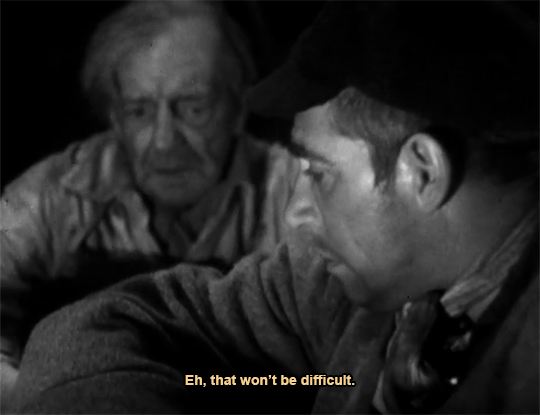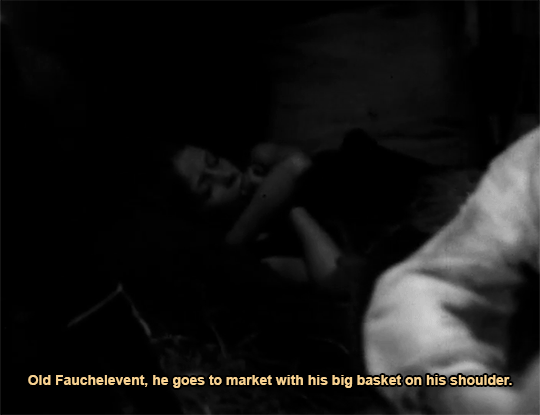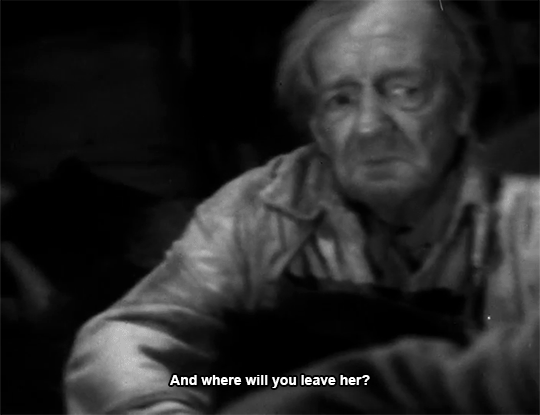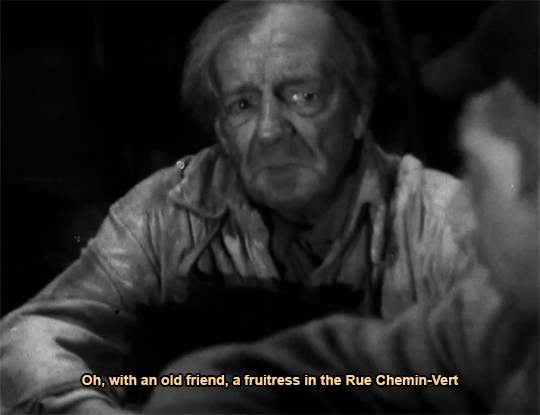#convent digression
Explore tagged Tumblr posts
Text
While writing his convent digression, Hugo needed informants (women) who could supply him with their memoirs about their childhood spent with nuns. His two lovers agreed to share this information with him. Juliette Drouet went to the convent school of the Dames de Sainte-Madeleine and wrote four pages about her experience there. But it was poor Léonie Biard (the one who was imprisoned for adultery because of her affair with Hugo) who, after being released from prison, provided Hugo with rich information about the convent in which she was educated. From her memoirs, he borrowed the name of the order (of the Perpetual Adoration of the Holy Sacrament) and also included her description of the convent garden almost verbatim. Thanks to these two women, Hugo’s description of the convent and life within its walls was perceived as credible.
37 notes
·
View notes
Text
Excerpt from One American's Paris, printed in The Northam Advertiser, 13 November 1937:
One evening in Paris, we were playing a game, intended to brush up our knowledge of the city and of its history. The name of a street, or a church, or a museum, or any other locality was called out, and everybody hastily jotted down the first answering bit of information that came to mind. It worked out something like this: "Bois de Boulogne." "Armenonville." "Chestnut trees." "Louvre." "Shopping." "Venus de Milo." "Catharine de Medici." "Grand Palais." "Horse Show " "Salon." "Tuileries." "Commune." "Toy sail-boats.'' "Swiss Cuard." "Hotel de Sens" ??? "Picpus." Ah, that's easy. But, when the answers to this were read, among the "Pershings," and the "La Fayettes," someone had put down: "Little Cosette." The name was vaguely familiar. . . . . ."What did you say? 'Jean Valjean?' 'Javert?' 'Victor Hugo?' Oh yes - Les Miserables." A few days later, having meantime found the book, I traversed the miles of Paris that separate the Convent of Picpus from my hotel. As the taxi slowed down beside a high wall, whom should I see hopping out of another but the little girl of the croquet game [that the author had previously watched], followed by her maid. This time the child smiled at me and began at once, with evident excitement: "Do you suppose it was right here that Jean Valjean climbed the wall? How could he have ever wriggled himself up and pulled little Cosette over too! Oh, she must have been glad once they were beyond Javert's reach, And just think of the good fortune they had to find old Fauchelevent in there, covering up melon plants! It all worked out so nicely when the nuns took Cosette and Jean Valjean could stay round and help in the garden!" I began to think this enthusiastic child must be an amusing traveling companion— for the strong. So, when she ended up with: "We like the same things in Paris, don't we? Have you ever been inside one of their schools, or seen the 'coucher du soleil de Napoleon?' But, that, would have to be next year now," I decided to follow her advice about the first and to find out what in the world she meant by the other.
#les miserables#fans through the ages#convent digression#petit picpus#Victor Hugo spreading misinformation
3 notes
·
View notes
Text

#my posts#les mis#les miserables#victor hugo#lascelles wraxall#wraxall translation#lynd ward#lm 2.7.6#convent digression
32 notes
·
View notes
Text
#reminder that the thought of death brings JVJ peace#reminder that JVJ is happiest in the tomb-like convent#reminder that JVJ wants to be dead SO BAD#this man really had one (1) reason for continuing to drag himself through this bitch of an existence (via @shitpostingfromthebarricade )

Vol.II - Book.VIII - Ch.VII
* Fauchelevent almost has a heart attack thinking that Valjean is died *
Valjean in the coffin enjoying his nap :

224 notes
·
View notes
Text
Realising that my idea of what it means to be in a fandom might be a little skewed so help me out here what is your baseline qualification for being part of a fandom
#for example#is it as simple as liking the thing#do you have to interact with others who like the thing#do you have to make fan content for the thing#or is it personal opinion#ie i think im part of this fandom vs i dont think im part of this fandom#for context btw:#my friend showed me one of those tiktoks of the guy walking around a convention#asking attendees which is the most annoying fandom#(which imo stupid question its gonna depend on popularity and average age of the fans but i digress)#and like my friend was showing me bc most of the people were saying mha and she knows im into mha#and she was just trying to joke that thats me theyre talking about#but i don't really consider myself in the mha fandom but like shouldn't i ??#like i enjoy mha so am i part of the fandom???#and then i thought damn do i even consider myself apart of the dc fandom???#weird thoughts for a Thursday evening
233 notes
·
View notes
Text
caspeter figure skater au where peter's a solo skater and either susan is or they used to be in pairs and she decides to go ice dance route and caspian ends up her partner and as with many ice dance pairs they're Just friends (like they would be such gossip buddies. i believe this wholeheartedly.) but the media and fans are like trying to snoop to find out if they're "Actually Dating" and then no. he's actually dating her brother. famed figure skater peter pevensie.
#narnia#caspeter#i do not have enough figure skating knowledge to write this but i think in another world it's both unhinged#and interesting commentary on the conventions in ice dance of romantically themed programs and assumed chemistry between partners#which tbf a lot of skaters have been pushing back against over the last several years yay yippee but anyway. i digress
30 notes
·
View notes
Text
I found the spell Circle of Death while looking at Arcanums for kicks and I need to ask: does ANYONE use this in regular play and if so, are your PCs on trial for war crimes?
Circle of Death
6th-level necromancy Casting Time: 1 action Range: 150 feet Components: V, S, M (the powder of a crushed black pearl worth at least 500 gp) Duration: Instantaneous A sphere of negative energy ripples out in a 60-foot-radius sphere from a point within range. Each creature in that area must make a Constitution saving throw. A target takes 8d6 necrotic damage on a failed save, or half as much damage on a successful one.
#HOW ARE YOU AVOIDING FRIENDLY FIRE WITH THAT LARGE OF AN AOE RADIUS. HOLY HELL.#to be clear. this was for an active war criminal of a character lmfao.#will they have an arcanum level-wise? dunno yet. bUT.#this is like. a literal war crime tho lmfao.#contrary to popular belief there ARE theories of universal war crimes and I am pretty sure this qualifies.#(this is also why I get annoyed at 'um there's no geneva convention in exandria lol' takes.#do you think that's the only fucking defined usage of legal limitations on law. and have you ever opened a history book or.)#ANYWAY I DIGRESS#dungeons and dragons
121 notes
·
View notes
Text
Saw an old post on reddit about the fourth Doctor and his companions, and someone under it said that Four didn't even care about them cause he was always dismissive and/or mean etc..... But they must not know him like I know him then cause w h a t. What do you mean he didn't care? Did we witness the same character??
#just because hes not affectionate in a conventional way doesnt mean hes heartless either#idk what my point is here#actually i do and its that he cares about his companions just as much as the other incarnations do#and that just because he doesnt always show it directly doesnt make it any less true#almost all versions of the doctor can be mean/dismissive sometimes but when it comes down to it they care and theyre kind#idk maybe i got him wrong and hes just cold and callous most of the time but I digress#i think he cares a lot about his friends and i will die on that hill#fourth doctor#classic who#doctor who
31 notes
·
View notes
Text
There are two points about this chapter that I missed last year. Firstly, there's another reminder that convents are scarcely better than prisons, particularly in terms of inflicting suffering and torture. Hugo describes in pace same way he would describe dungeons under the Châtelet.
Secondly, his statements about nuns: “women who think themselves wives,��� yet they are obviously not wives, nor do they think or truly live; instead, they seem to exhale death. And Hugo is very bold in using this metaphor: “At night, the beautiful, nude young man descended from the cross and became the ecstasy of the cloistered one.” This is very typical for Hugo to be mean—or just weird—about unmarried/celibate women. In contrast, the novel features celibate men like Valjean, Javert, and Enjolras, and their self-imposed virginity is not met with the same judgment, highlighting societal double standards regarding sexuality and gender roles.
42 notes
·
View notes
Text
Yeah, "housekeeping" here definitely means "household administration"--and that principally means bookkeeping.
A well-off bourgeois household like the ones most of Cosette's classmates come from would have made most of its purchases on credit--you'd have an account with the tailor, the laundress, the grocer, the water-carrier, etc.; they'd send you a bill; and you'd settle those accounts quarterly. And income from rents and investment would also come in quarterly; and you'd pay your own rent and your servants' wages on the same schedule.
So keeping track of it all meant keeping well-organized written records of, at the least, every purchase made on credit, which was most of them, in up to a couple dozen separate accounts with all the local merchants, plus wages and rent and interest owed and owing, so that you knew how much of the cash you had on hand was actually spoken for how much was available, over up to a three-month span. (And doing it on paper--no spreadsheets in 1830!)
And this would have been the work of the mistress of the household at every level of society. Exactly what sort of credit a person would be extended, and by what merchants, varied by class, but only the very, very poor would have been paying cash up front for most things--and only the very, very rich would have been outsourcing this accounting work to servants.
(We think of a credit economy as a recent thing, but it's really not--what's recent is banking instruments that let anyone outside the very wealthy elite access credit anywhere in the world, with complete strangers.)
It's English and not quite in-period--contemporary with when LM was published but not when it was set--but Mrs. Beeton's chapters on the duties of the mistress of the house and the housekeeper is an informative look at what household accounting would have looked like in households where it was outsourced to a servant. (She's also very good at the other things that went into housekeeping: hiring servants and managing their work; planning menus; nursing sick members of the household; and chores involving expensive items or ingredients the mistress might not have trusted servants with.)
During making a gifset for today's chapter, I found this sentence.
Cosette had been taught housekeeping in the convent, and she regulated their expenditure, which was very modest.
Vol. 4, Book 3, Chpater 2.
The nuns taught her housekeeping which literally meaning chores and other houseworks. But thinking about her childhood, I think this class would be one of the most hard classes for her, bring back the bad memories of that horrible inn. What would you think about this?
132 notes
·
View notes
Text
The vocal mother said to the prioress in a low voice
“He answers well.”
Jean Valjean had not uttered a single word. – les mis, 2.8.8
this book is a goddamn comedy
#les mis#les mis letters#les mis daily#stop being so funny hugo#or ill forget to be upset about the convent digressions from earlier
58 notes
·
View notes
Text

#my posts#les mis#les miserables#victor hugo#lascelles wraxall#wraxall translation#lynd ward#lm 2.7.5#convent digression
22 notes
·
View notes
Text
When still living in the same city as her there is always a chance that you will run into a person you Do Not want to see, and even if you recognize her but you are not sure she saw you and you only walked by her it can Still absolutely Tank your mood for the rest of the day.
#monster noises#and I was so proud of myself too!#i did pride today and I was up on the float doing crowdwork!!#a few years ago i would have absolutely locked up and had a bit of a breakdown and had to get down or run away or something#but I did it and I did a good job!#but then I saw her at a bus stop i was unavoidably going to be walking past and my brain was Immediately like#-One Thousand Screams Alarm-#and I walked past quickly and she was talking to someone else and my hairs much longer than when she last saw me and so's my beard#and i had a hat and sunglasses on so she probably didn't even See me amd it wouldn't have mattered if she Did#cause she also probably doesn't want to chat idly with me#it still freaked me out real bad#and now my brains just been spiralling all around that junk all afternoon#when i should have been working on my Comic#and ACK#i wanted to have this done this weekend but that's kinda on me for forgetting Pride was happening this weekend as well vjcjkdc#but i digress#really didn't need to see her at the time i'm at in my life right now specifically#but it was both pride and a convention for a thing she's really into this weekend so the percent chance we'd be in the same area went Way u#it was bound to happen#just#Ugh
5 notes
·
View notes
Text
This shit is about to piss me off!!! Vote for clexa cuz I refuse to have the most iconic and influential wlw ship lose to some lines and colors goddammit 😤😤😤😤😤
https://x.com/dykejedis/status/1777151865349632269?s=46&t=qQfDN6w57AhyTovxMAeXzQ
#I h8 cartoons – a personal grief#there’s no question that this pointless poll with no real world consequences should come down to clexa & xena and then clexa should win for#starting a whole movement kicking off the billboard trend and creating a whole convention but I digress#clexa#commander lexa#clarke griffin#clarke x lexa
7 notes
·
View notes
Photo





LES MIS LETTERS IN ADAPTATION - Which Treats of the Manner of Entering a Convent, LM 2.8.1 (Les Miserables 1967)
“It will be easy enough for her to get out of here. I have my service door which opens on the courtyard. I knock. The porter opens; I have my vintage basket on my back, the child is in it, I go out. Father Fauchelevent goes out with his basket—that is perfectly natural. You will tell the child to keep very quiet. She will be under the cover. I will leave her for whatever time is required with a good old friend, a fruit-seller whom I know in the Rue Chemin-Vert, who is deaf, and who has a little bed. I will shout in the fruit-seller’s ear, that she is a niece of mine, and that she is to keep her for me until to-morrow. Then the little one will re-enter with you; for I will contrive to have you re-enter. It must be done. But how will you manage to get out?”
#Les Mis#les Mis Letters#Les Mis Letters in Adaptation#Les Mis 1967#Les Miserables 1967#Valjean#Fauchelevent#Jean Valjean#Cosette#Cosette Fauchelevent#Frank Finlay#lesmisedit#lesmiserablesedit#lesmiserables1967edit#pureanonedits#andddd we're back!#convent digression is over!
31 notes
·
View notes
Text
This chapter is super short, so I’ll just go paragraph by paragraph:
“This book is a drama, whose leading personage is the Infinite.
“Man is the second.”
The Infinite is back! Technically, it never leaves, but it’s been a while since we got an explicit reference to it. Its placement as the “hero” is interesting; this novel is very focused on “Man,” both in the sense that we follow people dealing with structures made by other people and in the sense that the apparent protagonist, Jean Valjean, is the “Everyman” in everything aside from his strength. The Infinite is less visible (although Hugo brings it up often), but with this order of heroes, it suddenly makes sense that we began with the bishop and not with Jean Valjean. The bishop is a person, of course, but as a religious figure, his role is to contemplate the Infinite even as he helps others. In some ways, he’s a bridge between these two “heroes.”
“ Such being the case, and a convent having happened to be on our road, it has been our duty to enter it. Why? Because the convent, which is common to the Orient as well as to the Occident, to antiquity as well as to modern times, to paganism, to Buddhism, to Mahometanism, as well as to Christianity, is one of the optical apparatuses applied by man to the Infinite. ”
Here, Hugo argues that analyzing the convent was necessary because it’s “universal” as a way of approaching the “Infinite.” While this is debatable (it seems like an oversimplification), it’s interesting to see this attempt at universalizing the novel (if the Infinite is the hero, then its message applies everywhere). Hugo’s done this before, in the preface; he stated that the novel will be relevant as long as poverty exists, universalizing it across time. Here, he does so across space. It’s also fitting that this happens in a digression, as although the book’s themes can be transferred across many contexts (there’s a reason so many people still enjoy it and its various adaptations today, in many different places), the book itself is very much a product of 19th-century France. This is part of the appeal as well; the places Hugo describes are so specific (whether they’re fictional or not), and the way the historical context is linked to characters and events really enriches the story. By moving towards an exploration of the “Infinite,” we’re also zooming out on this French context, allowing Hugo to remind us of his novel’s broader aims.
“ This is not the place for enlarging disproportionately on certain ideas; nevertheless, while absolutely maintaining our reserves, our restrictions, and even our indignations, we must say that every time we encounter man in the Infinite, either well or ill understood, we feel ourselves overpowered with respect. There is, in the synagogue, in the mosque, in the pagoda, in the wigwam, a hideous side which we execrate, and a sublime side, which we adore. What a contemplation for the mind, and what endless food for thought, is the reverberation of God upon the human wall! ”
I can’t tell what Hugo is referring to when he says this isn’t the place to develop "certain ideas” “disproportionately;” is this tied to the novel (avoiding yet another digression)? The state (censorship if he elaborates)? Himself (not wanting to support a total rejection of religion)? Also, while I recognize that his comments on other religious buildings are meant to mean his comments here aren’t specifically targeting Christianity (even if this is a Christian structure) but are instead part of the issue with religions that encourage good (engaging with the Infinite) while having unjust structures, it’s very uncomfortable to only see non-Christian buildings singled out in this paragraph as sites deserving of “execration” and “adoration.” Part of the issue is that, as much as this book can speak across time and space, Hugo is still very much a 19th-century French man. Hearing him reference other places (particularly outside of Europe) and religions besides Christianity could go very badly.
#les mis letters#lm 2.7.1#the Infinite#I've read Hugo's Napoleon poetry and that's why I get very worried when he starts mentioning other religions#and other regions#I know his views are pretty horrible and unpleasant to read#but I'm also relieved to be leaving the convent digression in some way#this is still convent-related but at least it requires less convent-specific knowledge#I understand what he's saying more easily
22 notes
·
View notes